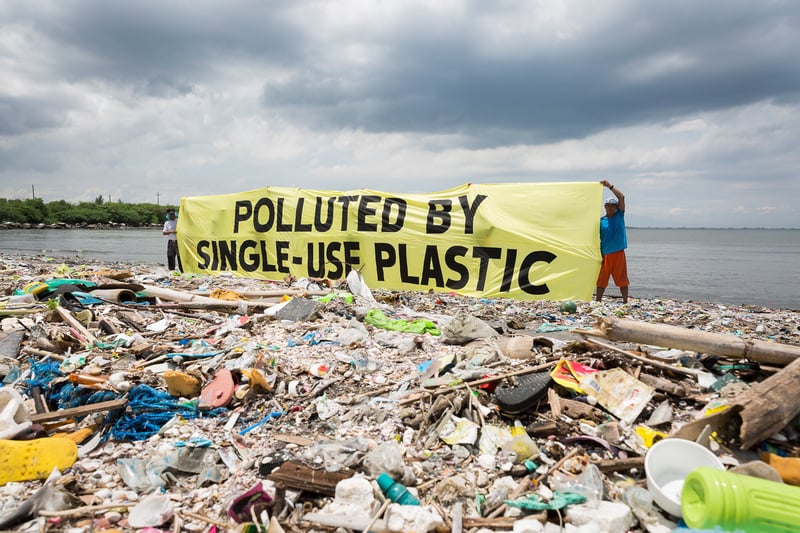In the past 5 years there has been an influx of offshore Oil and Gas applications in South Africa. More recently Africa Oil SA Corp, Ricocure (Pty) Ltd and Azinam Limited (the Joint Venture (JV) Partners) have been granted an Environmental Authorisation (EA) for exploration activities (drilling of up to 5 exploration wells) within the Block 3B/4B offshore area, approximately 120 km west of St Helena Bay and approximately 145 km south-west of Hondeklip Bay off the West Coast of South Africa.
More investment in offshore oil and gas drilling will result in severe environmental damage including the risks of spills that endanger marine ecosystems and destroy the livelihoods of the coastal communities, which will inevitably exacerbate the climate crisis. Such activities also undermine meaningful efforts and commitments to transition towards renewable energy.
Greenpeace Africa, with the assistance of its attorneys, Cullinan and Associates, has lodged an appeal against the decision granted by the Department of Mineral Resources. This decision, in our view, raises serious concerns regarding the balance between environmental protection and the exploitation of mineral resources, a matter which demands careful scrutiny in light of both constitutional and statutory obligations.
Grounds of Appeal
1. Failure to consider full scope of potential impacts.
The Environmental Impact Report (EIR) prepared for the proposed exploration activities failed to holistically assess the full scope of impacts, particularly those associated with commercial production, which is a reasonably foreseeable consequence of successful exploration. While the EIR focuses solely on exploration, the Mineral and Petroleum Resources Development Act (MPRDA) clearly links exploration with future production, making it essential to consider production-related impacts from the outset. Moreover, the appeal stresses that cumulative and long-term impacts, such as environmental degradation and greenhouse gas emissions, should have been evaluated. By not doing so, the EIR prevents decision-makers from fully understanding the potential consequences of authorising exploration. This failure to consider production-related impacts constitutes a critical flaw in the environmental authorisation process.
2. EA granted on the basis of flawed assessment and consideration of risks and impacts.
The EA granted is flawed due to a misrepresentation of risks and impacts in the EIR. Despite acknowledging the high environmental risks, particularly regarding oil spills and their impact on marine life, the EIR downplays the severity of potential environmental disasters, such as oil spills and relies on mitigation plans that have not yet been developed, preventing public participation. It also misrepresents impacts on marine ecosystems, livelihoods and conservation efforts. These critical omissions undermine the decision-making process, rendering the EA unjustified.
The EIR disingenuously frames potential economic benefits from oil spill response efforts, such as increased demand for goods and services and employment, as positive impacts. While these activities might temporarily boost South Africa’s GDP, they are fundamentally adverse from an environmental perspective, given the severe damage oil spills inflict on marine ecosystems.
The EIR inadequately addresses climate change impacts by focusing only on the exploration phase and neglecting the production phase if viable oil or gas resources are found. This oversight is significant because oil and gas production directly contributes to greenhouse gas emissions. By failing to assess the long-term climate change consequences, the EIR does not provide the competent authority with sufficient information to make an informed decision on the EA. This misleading representation makes the EA based on flawed and incomplete analysis.
3. Inadequate consideration of National Environment Management: Integrated Coastal Management Act
The EA failed to adequately consider the requirements of the National Environmental Management: Integrated Coastal Management Act (NEM:ICMA). Section 63 of the NEM:ICMA mandates that decision-makers assess whether coastal public property, the coastal protection zone and access land will be affected by a project. They must also evaluate whether the project might cause irreversible damage, conflict with conservation efforts, and serve the interests of the entire community.
The EA fails to properly assess these factors, particularly the long-term adverse impacts on the coastal environment and its inhabitants.
Furthermore, the decision overlooks the State’s duty as a public trustee to protect coastal resources for current and future generations. This oversight undermines the legitimacy of the authorisation.
4. Flawed Assessment of the No-Go Alternative
This appeal challenges the flawed assessment of the “No-Go” alternative in the EA. While the no-go option is dismissed due to potential benefits such as economic opportunities and energy security, the assessment fails to adequately weigh these benefits against the significant environmental risks of exploration and potential production activities.
By not fully considering these environmental costs, the competent authority has been denied a balanced evaluation of alternatives. The EA’s reliance on purported opportunity costs is therefore misguided and incomplete.
5. EA granted on the basis of a flawed motivation for need and desirability.
This EA for the exploration activities is based on a flawed assessment of the project’s need and desirability. The justification relies on the premise that gas, as a “transition fuel,” would support energy security and facilitate a shift from fossil fuels. However, this is contradicted by scientific evidence showing that gas has a greater greenhouse gas footprint than coal or oil, primarily due to methane emissions. The potential for large-scale gas production from the exploration area is speculative, with no certainty that the gas would be usable within the necessary timeframes to support a transition to net-zero emissions by 2050. The EA fails to adequately consider the environmental impacts of future production or weigh the broader climate risks. As a result, the decision-making process lacks the comprehensive assessment required to determine whether the project is indeed necessary or desirable
6. Decision to grant the EA irrational and unreasonable
This appeal asserts that the decision to grant the EA for oil and gas exploration is both irrational and unreasonable. The conclusion that the proposed activities pose no detrimental risks to the environment and public is incorrect, given the significant environmental and climate change impacts. The flaws in the EIR and the failure to consider public concerns further highlight that the competent authority did not properly assess the risks. Therefore, the decision to grant the EA lacks reasonableness and rationality, and should be overturned on appeal.
Sherelee Odayar, Philipa King, Lesai Seema and Cormac Cullinan



